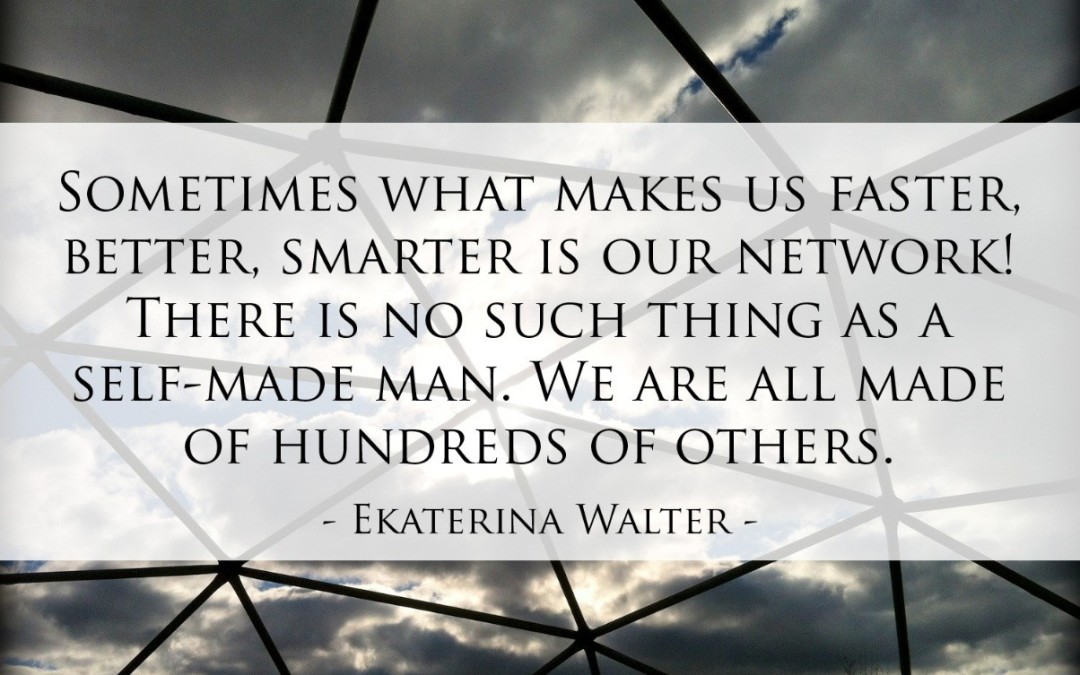I consider myself a highly productive person. Especially so when I take on multiple projects that I am passionate about. And when I bite more than I can chew – which happens often, because I love what I do – I go into overdrive. And that’s when, on that proverbial edge, you learn some amazing things about your own limitations and the power of productivity.

A lot of leaders and innovators I work(ed) with tend to be extremely productive people… especially in the fast-changing tech industry, where I spent a big chunk of my career. Here are some useful behaviors I learned and have seen productive people display consistently:
Seek Daily Productivity Pockets
Figure out when during the day you are the most productive and establish blocks of time to allow for a very targeted and clear focus. If you are a morning person, make sure you do all the critical strategy brainstorms or writing in the mornings before you jump into all the meetings. But the important thing here is to ensure there are no distractions during that time. If you maintain your laser focus, your creativity will spike and your output will be better. You will also find yourself finishing your tasks faster.
If the block of time is significant, you can even set an email going out to people telling them not to expect an immediate reply to their emails during those times. This will also accomplish another very important thing: getting an email like this reminds others to respect your time… and, believe me, they will remember that in the future.
Never Eat Lunch at Your Desk, Alone
If you think chowing down lunch at your desk in 10 minutes will save you time and help you be productive, think again! First off, it’s not healthy for you, so take time to chew your food well and enjoy it while you are doing so.
Second, realize that sometimes what makes you faster, better, smarter is your network! Using your lunch time or a break to get to know others, help others with work advice, or discuss an ongoing project will yield way more impact in the future. The benefits are endless. Deeper relationship with someone means they will be more willing to find time to help you out with your current project, budget approval, or career advice. Staying in touch with the people in the industry means that they can provide useful tidbits of information that will help you prepare a smarter strategy or find a vendor that you need without hours and hour of research. The list goes on.
Use Productivity Tools
In the digital era of constant flashing message reminders (incoming emails, tweets, and other social updates), focus is critical in not only being productive, but being creative as well. As social media practitioner, I know how hard it is to not be tempted to check social networks every five minutes, even if it is for work purposes.
First of all, turn off all of the incoming message notifications! You don’t need them. Trust me! And when your willpower isn’t enough, there are a ton of website blockers that will block access to specific websites during specified periods of time. Some popular browser add-ons are: StayFocusd for Chrome, LeechBlock for Firefox, WasteNoTime for Safari.
Use Filters and Aggregators
In the age of infobesity, where we produce more content than we can possibly consume, relevant filters and aggregators become crucial to staying informed.
Use Twitter lists and Tweetdeck columns to filter updates from the folks in the industry who break the most relevant news (after all, we know that news nowadays break faster on Twitter than any news sites). Use apps like Flipboard to surface the most popular content in your interest area. Certain email aggregators do a good job of finding and serving up the most thought-provoking stories: the ones that I like the most for the social media and digital world are MediaPost, SmartBrief, MarketingCharts, eMarketer, and several others.
However you decide to get your daily dose of news and relevant content, establish your own filtering system. It will save you some time.
Provide Utility to Others
Then go one step further and become a human filter. Send out a weekly update with the most interesting content you’ve seen on the web to your colleagues and friends. Or just share an article or two with them. But here is the caveat – for it to be truly helpful to others, include a very quick summary of what struck you about this post or provide the most thought-provoking data point from the article.
How is this productive, you ask? After all, you have to spend your own time putting something like this together. That’s true, but this will be helpful in future to your personally in several ways. One: people will appreciate your efforts and will share the content they come across that you might have missed. Two: you can come back to the thoughts or data-points you shared and quickly identify the critical ones that you might need for a presentation or an article (one never knows what information you will need in future, and this concise type of record-keeping of what you read might prove very beneficial).
Delegate!
Some of your team members might have a much better grasp on a specific task or experience with performing it, so let others take on what you might not enjoy, but others do. They will execute with better precision and efficiency! Silence your inner control freak, (s)he is not doing you any favors! Delegating will make you a much better leader too, because it shows your trust in others and allows them to shine as well.
Go Away
Sometimes you just need to go to the park, coffee shop, or on a hike to get stuff done or get your creative juices flowing. We all need white space to create something new, or total silence to be able to talk ourselves through the strategy we are working on. So when you feel like office becomes a place of constant distraction, go someplace else (and take your small team with you, if the project calls for teamwork). Not only will you get stuff done, but hopefully bond in the process as well.
Originally posted in Forbes

